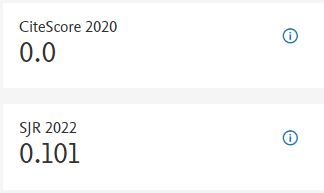ROLE OF YOUTH IN INDIAN POLITICS: A POLITICAL ANALYTICAL STUDY
DOI:
https://doi.org/10.7492/r55zta52Keywords:
ROLE OF YOUTH IN INDIAN POLITICS: A POLITICAL ANALYTICAL STUDYAbstract
In India, youth involvement is evident in every field and profession. From engineering to medicine, law, commerce, business, sports, social work, and other fields, we find that young people are fully engaged in these areas. However, when it comes to politics, we hardly ever see it, and when we do, it is eventually suppressed as a career. India has been stuck in a vicious cycle of the same political parties and an unaltered system since independence, but more young people in the system could lead to more significant and progressive changes in the nation. The under-representation of youth in politics, social and political variables including familial expectations, and a general lack of trust in political institutions are just a few of the numerous reasons why youth are under-represented in the Indian political system. But these enduring factors—which can persist indefinitely if nothing changes—make the impact that the kids could have on our nation irreversible.
Young revolutionaries like NetajiSubhash Chandra Bose, Bhagat Singh, Chandrasekhar Azad, and Rani Lakshmibai fled the British in the contemporary era. The nation's father, Mahatma Gandhi, had many youthful leaders who helped his activities succeed, and it was under his direction that India achieved independence. In terms of modern India's history, from independence to the present, youngsters have been at the forefront of numerous movements and transformations. The youth took on responsibility for everything from creating nuclear power to making India self-sufficient in food production (Green Revolution). Young minds were responsible for both the new economic policies and the computer revolution.
India is the youngest nation in the world when it comes to the present. Based on population figures, those under the age of twenty-five make up half of India's total population, while those beyond the age of thirty-five make up the remaining sixty-five percent. Because of this, it is seen as a worldwide superpower and is expected to emerge victorious in the twenty-first century. The country's progress can only be driven by its youth population. Dr. A.P.J. Abdul Kalam, a former president of India, had stated that we have a treasure of youth resources and that we may quickly become a superpower if we give them more power.

















